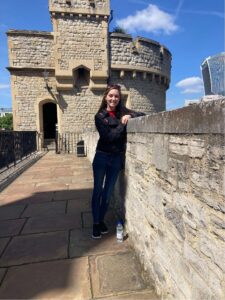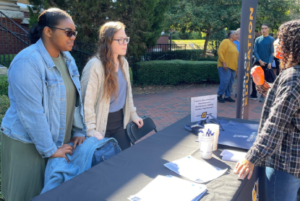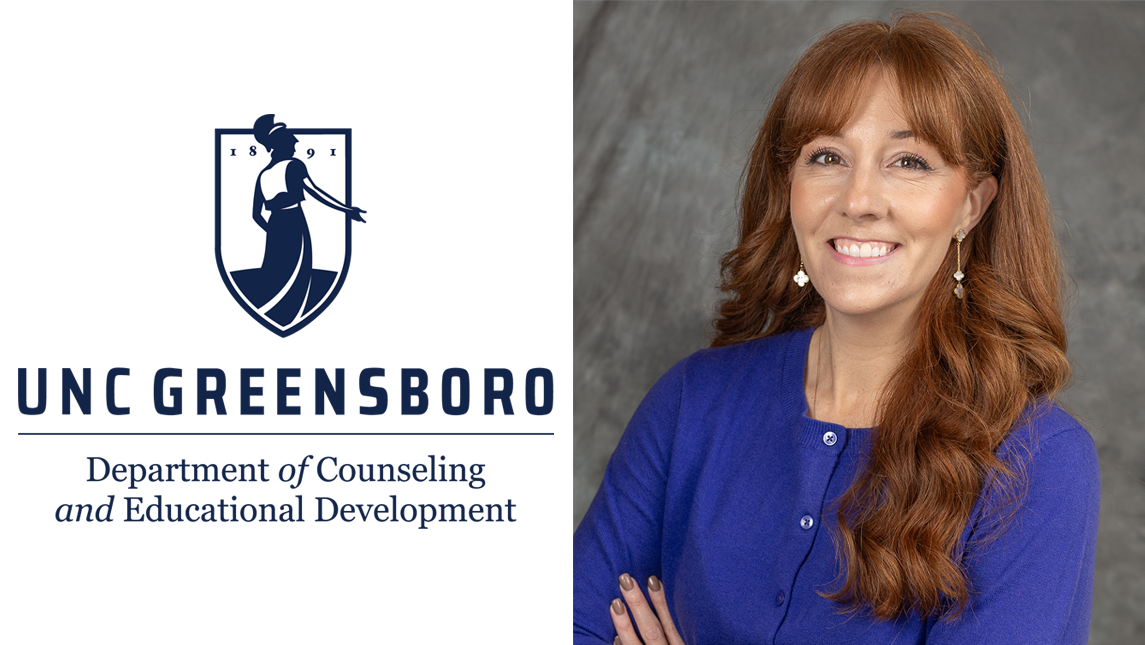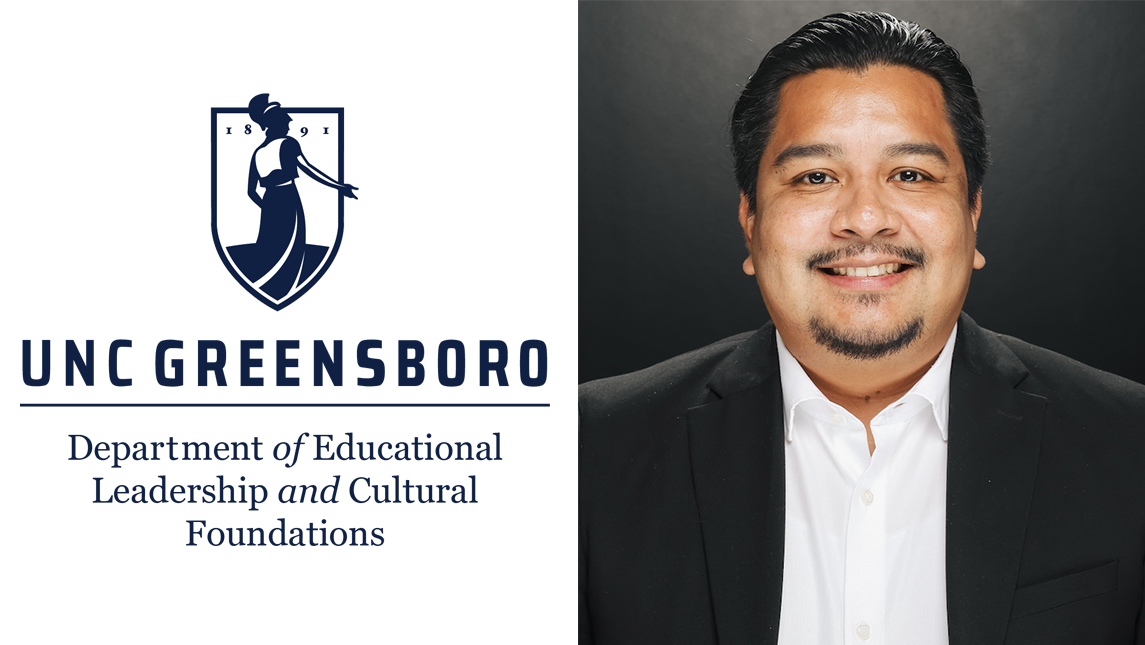Developing high-quality and well-prepared teachers is a priority for the School of Education at UNC Greensboro. Doing so by reducing potential financial barriers for students is also key.
By combining these priorities, the School of Education developed the UNCG Teacher Education Fellows program, a scholarship opportunity for incoming freshmen students wishing to major in elementary education, middle grades education, special education, and dual (elementary and special) education, as well as majors in the College of Arts and Sciences with secondary education concentrations. Over a four-year period, Teacher Education Fellows provides $20,000 in scholarship funds to each student admitted to the program.
First-year student Melanie Gomez-Leal, who is majoring in elementary education with a minor in American Sign Language (ASL), says that she would not be at UNCG without the Teacher Education Fellows program. “Not only the scholarship money, that’s a huge plus, but just knowing that I have a community to fall into is one of the main things I wanted when I transitioned to college. I feel like if I didn’t have that support system, then I would be completely lost.”
Third-year fellow Macy Clarida, a secondary biology major, had narrowed her college choices down to two schools – UNCG and Western Carolina University. Being from the Triad and having a father who is a UNCG alumnus, Clarida thought that she may want to enroll at Western Carolina. However, being accepted into the Teacher Education Fellows program made her choice an easy one. She said when she received her acceptance letter it was a “done deal.”
Due to the size of each cohort, which is limited to 12 people per year, members of the program build bonds with each other despite having a variety of areas of study. The fellows have weekly seminars where they are able to share thoughts, ideas, and experiences regarding the education field. They also bond outside of the classroom, like assisting with the annual Homecoming Children’s Festival. Cookouts and bowling excursions add to the camaraderie.
Members of the program have earlier access to internship opportunities than many other students in the School of Education, completing one each semester. This allows the fellows to be exposed to a variety of ages of students, classroom styles, and school types to better get a feel for where they believe their skills and style would be the best fit.
“It’s such a benefit,” says second-year fellow and special education major Natalia Fagundez. “I saw the benefit as, if this is what I hate, and I don’t want to do this, I know a month into starting college. Obviously, I didn’t hate it. But it’s just such a benefit because then you’re in (a classroom), you’re experiencing it. I’ve been at four or five schools now and you see the difference in teachers, the difference in resources. I don’t think I would be where I am right now without these internships.”
Teara Anderson, a second-year fellow and dual elementary and special education major, adds, “I’m at Peck Elementary. I’m in the exceptional children’s classroom. I’m also in an adapted classroom with children on an adapted curriculum. It’s been a really eye-opening experience for both. In all of my internships before, I only worked with children in the general education setting. This is very different to see children being taken out of their classrooms to go into a resource room and work on specific things. In the adapted classroom, a lot of the students are nonverbal. I haven’t really worked with a lot of nonverbal children before and it’s a very big difference to see. But I also know that this is what I want to do.”
Clarida echoes the importance of the internship experience, saying, “I think because I’ve gotten to see so many different teachers, different teaching styles and things like that I’m very well equipped. I was with a second grade class, I was with an eighth grade class, even though I’m high school biology, being able to see how they redirect children from such a young age does have an equivalent to high school.”
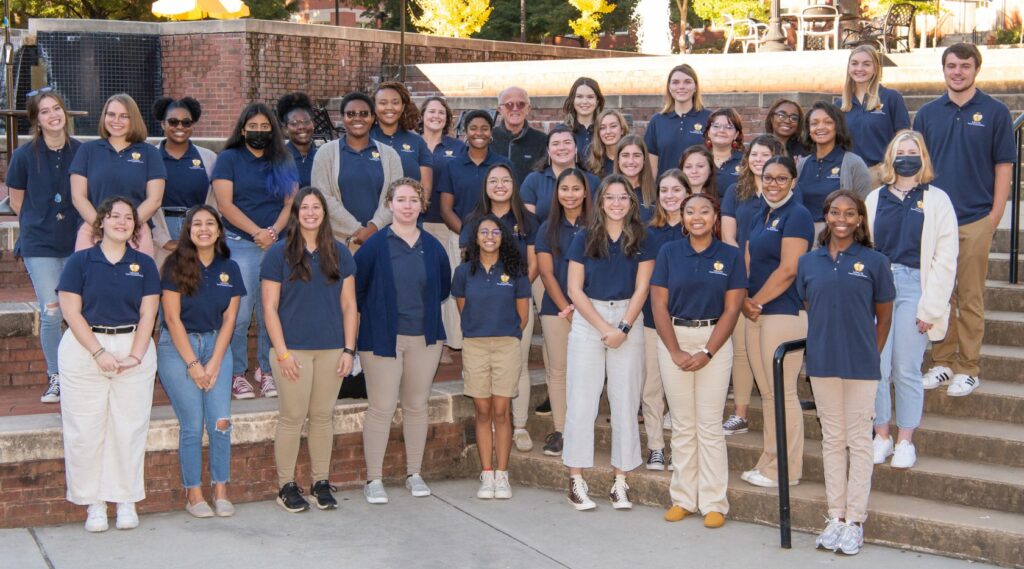
An important part of the fellows program is participating in the Leadership Challenge that is organized by UNCG’s Office of Leadership and Civic Engagement. This program is an institution-wide initiative to offer students leadership education, training, and development. These experiences allow students to enhance their leadership skills and prepare them to serve as changemakers in their communities.
Said Fagundez, “I think the most impactful part of that has been meeting with my mentor (a member of the faculty in the School of Education). And now, at the silver (level of the Leadership Challenge), we have to do personal development. (My mentor) and I decided to research the idea of immigrant guilt. We had talked about how people who are the children of immigrants kind of have this pressure that they want to prove to their parents that they made the right decision.”
Shameeka Wilson, a two-time UNCG graduate who earned her bachelor’s degree as part of the School of Education’s Interpreting, Deaf Education, and Advocacy Services (IDEAS) program in 2018 and her master’s in teacher education in 2020, says the Leadership Challenge was one of the most impactful experiences she had at the school. “I completed the silver leadership challenge…and that program really helped me to reflect on what it means to be a leader and what were my core values as a leader.”
At the bronze level, students attend five workshops, write reflections, and complete both community service and professional development. Silver-level participants build on their previous experiences and also lead sessions for students at the bronze level. Upon reaching the gold level, students engage in a community-based project. For each level complete, students earn medals to wear at graduation.
As they progress through the program, the fellows serve as mentors and guides for younger members of the program. Third-year fellows are partnered with first-year members, meeting multiple times over the course of the semester. These relationships allow for the younger students to seek out assistance or ask questions of a peer.
Many fellows take advantage of the chance to study abroad during their time at UNCG. Students have visited places such as China, the United Kingdom, and Italy.
“I got the opportunity to study abroad in Shanghai, China for three weeks during the Summer of 2017,” said Wilson. “Dr. Ye (Jane) He took five of us to Shanghai Normal University where we did a comparative analysis of the Chinese Education system and U.S. Education System. We got to team teach about North Carolina to a lot of children while exploring the city and partnering with Chinese pre-service teachers there as well. It was amazing!”
Both current students and alumni of the UNCG Teacher Education Fellows program say that this opportunity made a large impact on not only their time at UNCG, but in their careers after graduation.
Gomez-Leal said, “I feel like it’s made (my experience) a lot more positive because I come from a really small community. I wanted to have a community on campus that shared my same values for the education system. When we’re in class and we’re all talking about things like what we want in our classroom, it makes my heart so warm because the same stuff that I told my friends back home that I wanted in my classroom is the same stuff that everybody in the program says.”
Olivia Gerald, a 2018 graduate and social studies teacher who was the Teacher of the Year at Grimsley High School says, “The fellows program, and my continued involvement with the current fellows, help me maintain my passion for teaching. The program really showed me that I could have an impact by being myself. The fellows helped me come into my own as a teacher. In my first year of teaching, my school’s curriculum facilitator called my teaching style warm, but demanding. The Fellows program taught me important lessons which helped me craft my classroom culture, meet the needs of my struggling readers, and actively be involved in improving the school where I teach.
“The fellows program helped me to be bold, encouraged my creativity, and gave me the early preparation I needed to blossom into the teacher I am today. In my early years in the program, I could write a killer lesson plan, but was nervous about actually facilitating and teaching the lesson. Being a secondary licensure student, I would normally have waited an extra one to two years before actually getting into a classroom as an intern. Because of the fellows, I had internships before my non-fellow secondary peers which helped me adjust and find my footing in the classroom. The fellows program helped me develop the leadership skills and understanding of the education system that has allowed me to earn leadership positions at my school and be recognized on a county level for my teaching within my first five years in the field.”
Wilson adds that she still uses what she learned as a fellow today, saying, “There were two critical lessons we learned from the fellows program, which were to use your voice and you are the author of your story and your life; therefore, I use my voice within my research in an attempt to make teaching more equitable for all teachers, especially for Black teachers. Additionally, lead from behind. I’m always looking for ways that I can help others to achieve their dreams and, if I don’t have the resources, try to connect them to those who do have the resources.”
All of these participants in the UNCG Teacher Education Fellows encourage others to apply for the program. While there may be more involved with being a fellow, they say that the benefits far outweigh the additional work and time commitment.
Anderson said, “If you’re serious about being a teacher, then definitely do it. I like UNCG and teaching fellows. They’re both a lot of work, and you’re going to have to work hard for it. But if you’re passionate about teaching, then this is the place that you should be because there are so many great opportunities for you that you can’t get at many other places.”
“Education is a difficult field, but I believe that the things that are worth doing aren’t always easy,” said Gerald. “I would encourage (students) to join the fellows program. Yes, the scholarship is fantastic, but the program provides much more than just financial support. By requiring you to study abroad, providing you a mentor, and requiring you to get involved on campus, the fellows program does all it can to prepare you to be a teacher and leader. The fellows program was the highlight of my college experience.”

